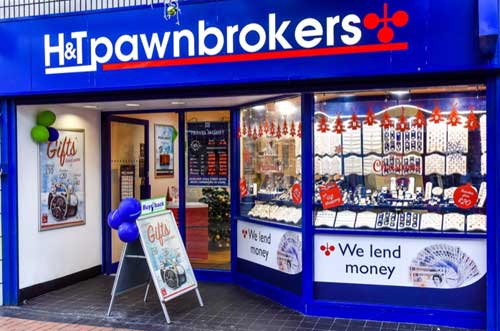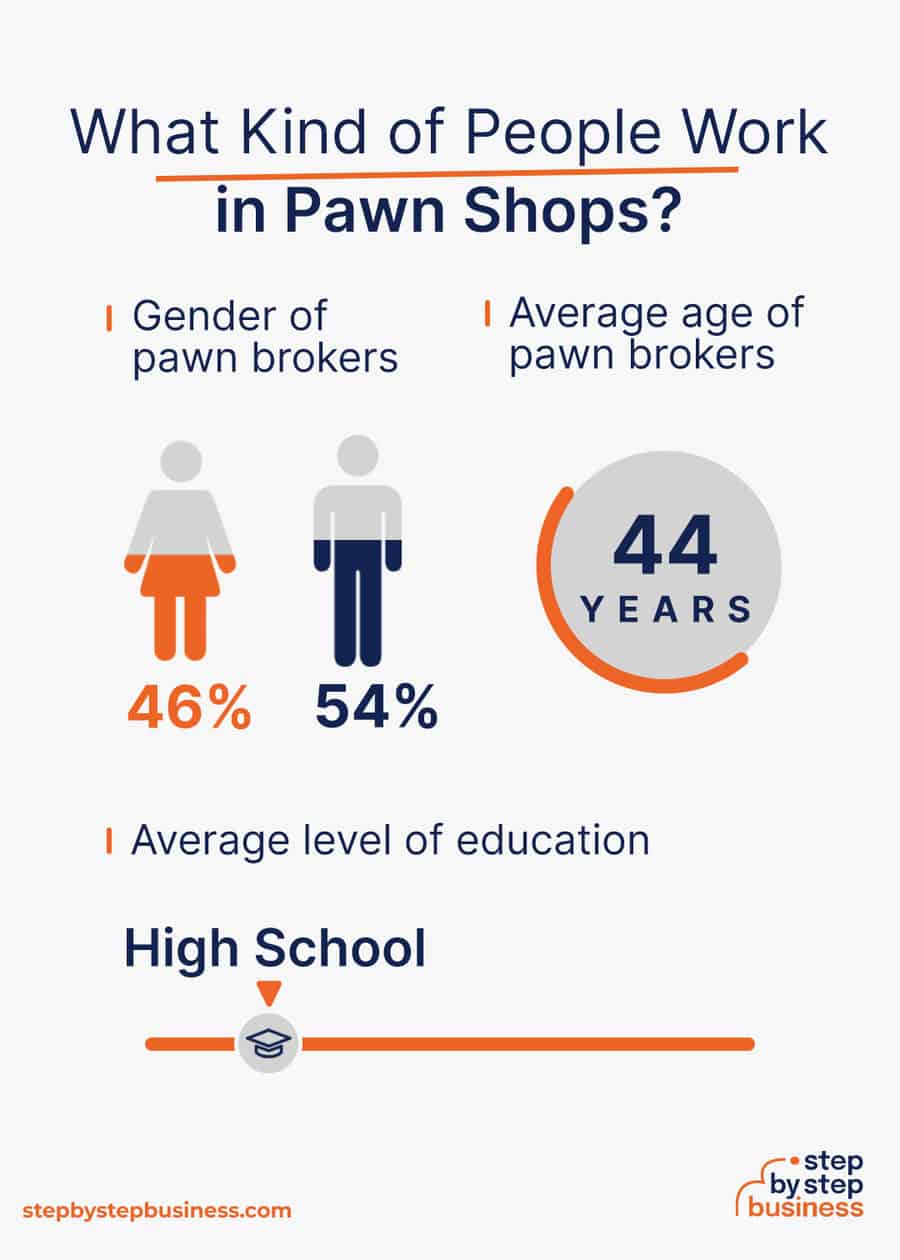What is a Pawn Shop and How Does it Operate?
A pawn shop is a business that provides financial services to individuals by offering loans in exchange for personal property, such as jewelry, electronics, and tools. The concept of pawn shops dates back to ancient civilizations, where people would exchange goods for money or other valuable items. Today, pawn shops continue to play a vital role in providing financial assistance to those in need.
At its core, a pawn shop operates by accepting items of value as collateral for a loan. The pawnbroker, the owner or employee of the pawn shop, assesses the item’s value and offers a loan based on its worth. The customer then has a set period, usually several months, to repay the loan with interest. If the customer fails to repay the loan, the pawn shop takes ownership of the item and sells it to recoup their losses.
Pawn shops offer a range of services, including buying and selling pre-owned items, providing loans, and offering repair services for certain items. They also often have a wide selection of merchandise, including unique and rare items, making them a popular destination for collectors and bargain hunters.
Understanding how a pawn shop works is essential for both buyers and sellers. By knowing the process and what to expect, individuals can navigate the pawn shop experience with confidence. Whether you’re looking to buy, sell, or pawn an item, it’s crucial to understand the inner workings of a pawn shop to get the best deal.
So, how does a pawn shop work? In essence, it’s a business that provides financial assistance to individuals by offering loans in exchange for personal property. By understanding the pawn shop process, individuals can make informed decisions and get the most out of their experience.
How to Get a Loan from a Pawn Shop: The Pawning Process Explained
Obtaining a loan from a pawn shop is a straightforward process that involves several steps. To understand how to get a loan from a pawn shop, it’s essential to know what to expect. The pawning process typically begins with an initial appraisal of the item being offered as collateral.
The pawnbroker will assess the item’s value, taking into account its condition, rarity, and demand. This appraisal process helps the pawnbroker determine the loan amount they are willing to offer. Once the appraisal is complete, the pawnbroker will make a loan offer, which includes the loan amount, interest rate, and repayment terms.
There are different types of loans offered by pawn shops, including collateral loans and title loans. Collateral loans are the most common type of loan, where the borrower offers an item of value as collateral in exchange for a loan. Title loans, on the other hand, require the borrower to offer the title of their vehicle as collateral.
When accepting a loan offer, it’s crucial to understand the terms of the agreement. This includes the loan amount, interest rate, and repayment terms. The borrower should also be aware of any fees associated with the loan, such as interest charges and late payment fees.
Once the loan is accepted, the borrower will receive the loan amount, and the pawn shop will hold the collateral until the loan is repaid. If the borrower fails to repay the loan, the pawn shop will take ownership of the collateral and sell it to recoup their losses.
Understanding the pawning process is essential to getting a loan from a pawn shop. By knowing what to expect, borrowers can make informed decisions and avoid any potential pitfalls. Whether you’re looking to get a loan or simply want to understand how pawn shops work, knowing the pawning process is crucial.
So, how does a pawn shop work when it comes to getting a loan? In essence, it’s a straightforward process that involves an initial appraisal, a loan offer, and a clear understanding of the terms of the agreement. By following these steps, borrowers can get the loan they need and avoid any potential issues.
What Determines the Value of an Item in a Pawn Shop?
The value of an item in a pawn shop is determined by several factors, including its condition, rarity, demand, and market value. Pawn shops use a combination of pricing guides, research, and expertise to determine the value of items.
Condition is a critical factor in determining the value of an item. Items that are in good condition, with minimal wear and tear, are generally worth more than those that are damaged or worn out. Pawn shops will also consider the item’s rarity, as rare or unique items are often more valuable than common ones.
Demand is another essential factor in determining the value of an item. If there is a high demand for a particular item, the pawn shop may be willing to pay more for it. Conversely, if there is little demand for an item, the pawn shop may offer a lower price.
Market value is also a crucial factor in determining the value of an item. Pawn shops will research the market value of an item to determine its worth. This includes checking prices online, consulting with experts, and reviewing sales data.
Pawn shops use various pricing guides, such as the National Pawnbrokers Association’s pricing guide, to help determine the value of items. These guides provide a benchmark for pricing items and ensure that pawn shops are offering fair prices.
In addition to these factors, pawn shops will also consider the item’s authenticity, provenance, and any certifications or documentation that may impact its value. By considering all these factors, pawn shops can determine the value of an item and offer a fair price to customers.
Understanding how pawn shops determine the value of items is essential for both buyers and sellers. By knowing what factors influence the value of an item, customers can make informed decisions and get the best deal possible.
So, how does a pawn shop work when it comes to determining the value of an item? In essence, it’s a combination of research, expertise, and market analysis that helps pawn shops determine the value of items and offer fair prices to customers.
How to Buy from a Pawn Shop: Tips and Tricks
Buying from a pawn shop can be a great way to find unique and affordable items, but it requires some knowledge and caution. To navigate a pawn shop successfully, it’s essential to know what to look for and how to negotiate prices.
Before making a purchase, inspect the item carefully for any damage or defects. Check for any signs of wear and tear, and make sure all parts are included. If you’re buying an electronic item, test it to ensure it’s working properly.
Research the item’s market value before making an offer. This will give you an idea of the item’s worth and help you negotiate a fair price. You can use online pricing guides or consult with experts to determine the item’s value.
Don’t be afraid to negotiate prices. Pawn shops expect customers to haggle, and it’s a normal part of the buying process. Make an offer based on your research, and be willing to walk away if the price isn’t right.
Be aware of any additional fees or charges associated with the purchase. Some pawn shops may charge a small fee for testing or inspecting items, so make sure to ask about any extra costs.
Consider the benefits of buying from a pawn shop. Pawn shops often carry unique and rare items that can’t be found elsewhere. Additionally, pawn shops may offer competitive prices and flexible payment options.
By following these tips and tricks, you can navigate a pawn shop with confidence and find great deals on unique items. Remember to always inspect items carefully, research market values, and negotiate prices to get the best deal possible.
So, how does a pawn shop work when it comes to buying and selling? In essence, it’s a process that requires knowledge, caution, and negotiation. By understanding how pawn shops operate and what to look for, you can find great deals and unique items.
The Role of Pawn Shops in the Community: More than Just a Place to Buy and Sell
Pawn shops play a vital role in local communities, providing financial services to underbanked populations and supporting small businesses. Despite their reputation, pawn shops are not just places to buy and sell goods, but also serve as a lifeline for people in need of quick cash.
Many people rely on pawn shops as a source of short-term credit, using them to cover unexpected expenses or pay bills. Pawn shops offer a convenient and accessible way to get cash quickly, without the need for a credit check or lengthy application process.
In addition to providing financial services, pawn shops also support local businesses by buying and selling goods. This helps to stimulate local economies and provides a market for small businesses to sell their products.
Pawn shops also play a role in preserving local history and culture. Many pawn shops specialize in buying and selling antique and vintage items, which helps to preserve the cultural heritage of the community.
Furthermore, pawn shops often partner with local organizations and charities to support community development projects. This helps to promote social and economic development in the community, and demonstrates the pawn shop’s commitment to giving back.
Despite the many benefits that pawn shops provide, they are often misunderstood and stigmatized. However, by understanding the role that pawn shops play in the community, we can appreciate their value and importance.
So, how does a pawn shop work in the community? In essence, it’s a business that provides financial services, supports local businesses, and preserves local history and culture. By recognizing the value of pawn shops, we can work to promote a more positive and accurate understanding of the industry.
Common Misconceptions about Pawn Shops: Separating Fact from Fiction
Despite their reputation, pawn shops are often misunderstood and stigmatized. Many people believe that pawn shops only deal in stolen goods or that they are predatory lenders. However, these claims are largely unfounded and based on misconceptions.
One common myth about pawn shops is that they only deal in stolen goods. However, this is not true. Pawn shops are regulated by law and are required to report any suspicious activity to the authorities. Additionally, pawn shops often work closely with law enforcement to identify and recover stolen goods.
Another misconception about pawn shops is that they are predatory lenders. However, pawn shops are regulated by laws that govern interest rates and loan terms. Pawn shops are also required to provide clear and transparent information about loan terms and conditions.
Some people also believe that pawn shops are only for people who are desperate or in financial trouble. However, this is not true. Pawn shops serve a wide range of customers, including collectors, investors, and individuals who are simply looking for a good deal.
Finally, some people believe that pawn shops are not regulated or licensed. However, this is not true. Pawn shops are regulated by state and federal laws, and are required to obtain licenses and permits to operate.
By understanding the facts about pawn shops, we can promote a more accurate and positive understanding of the industry. Pawn shops play an important role in providing financial services and supporting local economies.
So, how does a pawn shop work in terms of addressing common misconceptions? In essence, it’s about separating fact from fiction and promoting a more accurate understanding of the industry.
Regulations and Laws Governing Pawn Shops: What You Need to Know
Pawn shops are regulated by a variety of laws and regulations, both at the state and federal level. These laws are designed to protect consumers and ensure that pawn shops operate fairly and transparently.
One of the most important regulations governing pawn shops is the requirement for licensing. In most states, pawn shops are required to obtain a license to operate, which involves meeting certain standards and requirements.
Another important regulation is the interest rate cap. In many states, pawn shops are limited in the amount of interest they can charge on loans, which helps to protect consumers from predatory lending practices.
Consumer protection laws are also an important part of the regulatory framework governing pawn shops. These laws require pawn shops to provide clear and transparent information about loan terms and conditions, and to ensure that consumers are treated fairly and honestly.
In addition to these regulations, pawn shops are also subject to federal laws, such as the Truth in Lending Act (TILA) and the Equal Credit Opportunity Act (ECOA). These laws require pawn shops to provide clear and accurate information about loan terms and conditions, and to ensure that consumers are treated fairly and without discrimination.
By understanding the laws and regulations that govern pawn shops, consumers can make informed decisions and avoid potential pitfalls. Pawn shops that operate in compliance with these regulations can provide a safe and trustworthy environment for consumers to buy and sell goods.
So, how does a pawn shop work in terms of regulations and laws? In essence, it’s about operating in compliance with a variety of state and federal regulations, designed to protect consumers and ensure fair and transparent business practices.
Conclusion: The Ins and Outs of Pawn Shops Revealed
In conclusion, pawn shops are complex businesses that offer a range of services to buyers and sellers. By understanding how pawn shops work, including the pawning process, the factors that determine the value of an item, and the regulations that govern the industry, consumers can make informed decisions and avoid potential pitfalls.
Pawn shops play an important role in local communities, providing financial services to underbanked populations and supporting small businesses. They also offer a unique shopping experience, with a wide range of items available for purchase.
Whether you’re looking to buy, sell, or pawn an item, it’s essential to understand the ins and outs of pawn shops. By doing so, you can navigate the process with confidence and get the best deal possible.
So, how does a pawn shop work? In essence, it’s a business that provides financial services, buys and sells goods, and operates in compliance with a range of regulations. By understanding these aspects of pawn shops, consumers can make informed decisions and get the most out of their experience.
Visit a pawn shop today and experience the process firsthand. With their unique blend of financial services, shopping, and community involvement, pawn shops are an essential part of the retail landscape.







